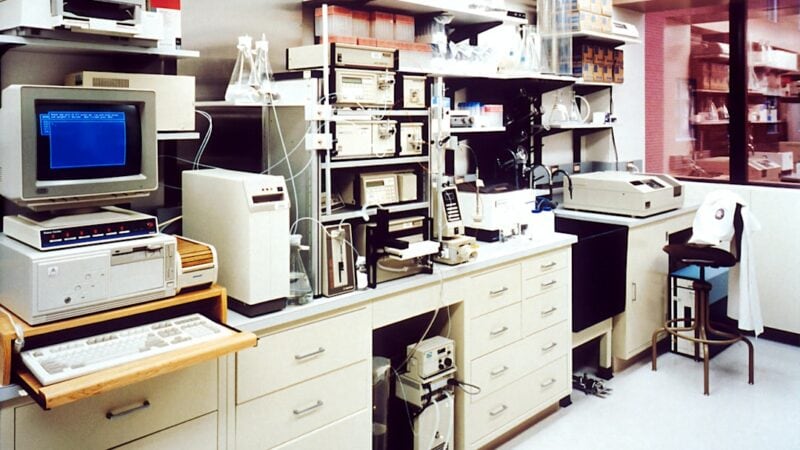Celiac Disease Complications: Understanding the Risks and Symptoms

Celiac Disease is an autoimmune disorder that affects the small intestine. It is triggered by the consumption of gluten, a protein found in wheat, barley, and rye. When individuals with Celiac Disease consume gluten, their immune system responds by attacking the lining of the small intestine, leading to inflammation and damage. This damage can result in a variety of symptoms and complications.
The symptoms of Celiac Disease can vary widely from person to person. Some individuals may experience digestive issues such as diarrhea, abdominal pain, and bloating. Others may have non-digestive symptoms such as fatigue, joint pain, and skin rashes. In some cases, individuals may not have any noticeable symptoms at all.
Celiac Disease can also lead to a range of complications if left untreated. These complications can affect various systems in the body, including the digestive system, skeletal system, reproductive system, neurological system, and more. It is important for individuals with Celiac Disease to be aware of these potential complications and take steps to manage their condition effectively.
Table of Contents
Key Takeaways
- Celiac disease is an autoimmune disorder that damages the small intestine when gluten is consumed.
- Early detection and diagnosis of celiac disease is crucial to prevent complications such as malnutrition and nutrient deficiencies.
- Celiac disease is linked to osteoporosis, type 1 diabetes, infertility, miscarriage, neurological disorders, and lymphoma.
- Women with celiac disease are at a higher risk of infertility and miscarriage.
- Treatment and management strategies can help cope with celiac disease complications and improve overall health.
The Importance of Early Detection and Diagnosis of Celiac Disease
Early detection and diagnosis of Celiac Disease are crucial for several reasons. Firstly, early diagnosis allows individuals to start a gluten-free diet as soon as possible, which is the only effective treatment for Celiac Disease. By eliminating gluten from their diet, individuals can prevent further damage to their small intestine and reduce the risk of complications.
Screening plays a vital role in the early detection of Celiac Disease. Screening involves testing individuals who are at high risk for the condition, such as those with a family history or other autoimmune disorders. It can also be done in individuals who have symptoms suggestive of Celiac Disease but have not yet been diagnosed.
Early diagnosis also has several benefits for individuals with Celiac Disease. It can help alleviate symptoms and improve quality of life. It can also prevent or reduce the risk of complications associated with the condition. Additionally, early diagnosis allows individuals to receive appropriate education and support to manage their condition effectively.
However, diagnosing Celiac Disease can be challenging. The symptoms of Celiac Disease can be similar to those of other digestive disorders, making it difficult to differentiate. Blood tests and intestinal biopsies are commonly used to diagnose Celiac Disease, but false negatives can occur. This is why it is important for individuals with persistent symptoms or a family history of Celiac Disease to work closely with their healthcare provider to ensure an accurate diagnosis.
Understanding the Risks of Malnutrition and Nutrient Deficiencies in Celiac Disease
Celiac Disease can lead to malnutrition and nutrient deficiencies due to the damage it causes to the small intestine. The small intestine is responsible for absorbing nutrients from food, but in individuals with Celiac Disease, the damaged lining hinders this process. This can result in inadequate absorption of essential nutrients, leading to deficiencies.
Gluten, the protein found in wheat, barley, and rye, is particularly problematic for individuals with Celiac Disease. It can cause inflammation and damage to the small intestine, impairing nutrient absorption. This can lead to deficiencies in nutrients such as iron, calcium, vitamin D, vitamin B12, and folate.
Common symptoms of nutrient deficiencies in individuals with Celiac Disease include fatigue, weakness, anemia, bone pain, and muscle cramps. It is important for individuals with Celiac Disease to work closely with a registered dietitian or nutritionist to develop a gluten-free diet that meets their nutritional needs.
Strategies for managing nutrient deficiencies in Celiac Disease include consuming a well-balanced diet that includes nutrient-rich foods such as fruits, vegetables, lean proteins, and gluten-free grains. In some cases, supplementation may be necessary to address specific deficiencies. Regular monitoring of nutrient levels through blood tests can help ensure that individuals with Celiac Disease are receiving adequate nutrition.
The Link Between Celiac Disease and Osteoporosis
Osteoporosis, a condition characterized by weak and brittle bones, is a common complication of Celiac Disease. The relationship between gluten and bone health is complex. The inflammation and damage caused by gluten in the small intestine can impair the absorption of calcium and vitamin D, both of which are essential for maintaining strong bones.
Studies have shown that individuals with Celiac Disease have a higher prevalence of osteoporosis compared to the general population. This increased risk is particularly significant in individuals who were diagnosed with Celiac Disease later in life or who have had the condition for a longer duration.
Preventing and managing osteoporosis in individuals with Celiac Disease involves several strategies. Firstly, following a strict gluten-free diet is essential to reduce inflammation and damage to the small intestine. This allows for better absorption of calcium and vitamin D, which are crucial for bone health.
In addition to a gluten-free diet, individuals with Celiac Disease should engage in weight-bearing exercises such as walking or strength training to promote bone density. They should also ensure an adequate intake of calcium and vitamin D through diet or supplementation. Regular bone density screenings can help monitor bone health and detect any changes early on.
Celiac Disease and its Association with Type 1 Diabetes
There is a strong association between Celiac Disease and Type 1 Diabetes, another autoimmune disorder. Studies have shown that individuals with Type 1 Diabetes have a higher prevalence of Celiac Disease compared to the general population. The exact reason for this association is not fully understood, but it is believed to be related to shared genetic factors.
Managing both Celiac Disease and Type 1 Diabetes can be challenging as they require different dietary considerations. Individuals with both conditions must follow a gluten-free diet to manage Celiac Disease while also monitoring their carbohydrate intake and blood sugar levels to manage Type 1 Diabetes.
Regular screening for Celiac Disease is recommended in individuals with Type 1 Diabetes, as symptoms may not always be present. This allows for early detection and intervention, reducing the risk of complications. Close collaboration between healthcare providers specializing in both Celiac Disease and Type 1 Diabetes is crucial to ensure comprehensive management of both conditions.
The Risk of Infertility and Miscarriage in Women with Celiac Disease

Celiac Disease can have a significant impact on reproductive health in women. The inflammation and damage caused by gluten in the small intestine can affect hormone levels and disrupt the menstrual cycle. This can lead to fertility issues, including difficulty conceiving and an increased risk of miscarriage.
Studies have shown that women with Celiac Disease have a higher prevalence of infertility compared to the general population. The exact mechanisms behind this association are not fully understood, but it is believed to be related to hormonal imbalances caused by the condition.
In addition to infertility, women with Celiac Disease also have an increased risk of miscarriage. The inflammation and nutrient deficiencies associated with the condition can affect the development of a healthy pregnancy, increasing the risk of pregnancy loss.
Managing reproductive health in women with Celiac Disease involves following a strict gluten-free diet to reduce inflammation and promote hormonal balance. In some cases, additional interventions such as hormone therapy or assisted reproductive technologies may be necessary to achieve pregnancy. Regular monitoring by a healthcare provider specializing in reproductive health is important for early detection and intervention.
The Connection Between Celiac Disease and Neurological Disorders
Celiac Disease has been associated with various neurological disorders, although the exact mechanisms behind this association are not fully understood. It is believed that the inflammation and immune response triggered by gluten in individuals with Celiac Disease can affect the nervous system, leading to neurological symptoms.
Neurological disorders that have been linked to Celiac Disease include peripheral neuropathy, ataxia, epilepsy, migraines, and depression. These conditions can cause a range of symptoms such as numbness and tingling in the extremities, difficulty with coordination and balance, seizures, severe headaches, and mood disturbances.
The prevalence of neurological disorders in individuals with Celiac Disease is higher compared to the general population. It is important for individuals with Celiac Disease who experience neurological symptoms to seek medical evaluation and appropriate management. Following a strict gluten-free diet is essential to reduce inflammation and potentially alleviate neurological symptoms.
The Risk of Developing Lymphoma in Celiac Disease Patients
Celiac Disease has been associated with an increased risk of developing lymphoma, a type of cancer that affects the lymphatic system. The exact mechanisms behind this association are not fully understood, but it is believed to be related to chronic inflammation and immune dysregulation caused by Celiac Disease.
Studies have shown that individuals with Celiac Disease have a higher prevalence of lymphoma compared to the general population. The risk is particularly elevated in individuals who have not adhered to a strict gluten-free diet or who have had uncontrolled inflammation and damage to the small intestine.
Preventing and managing lymphoma in individuals with Celiac Disease involves following a strict gluten-free diet to reduce inflammation and promote overall health. Regular monitoring by a healthcare provider specializing in oncology is important for early detection and intervention. It is also crucial for individuals with Celiac Disease to undergo regular screenings for other types of cancer as they may be at an increased risk.
The Impact of Celiac Disease on Dental Health
Celiac Disease can have a significant impact on dental health. The inflammation and damage caused by gluten in the small intestine can affect the absorption of essential nutrients that are crucial for maintaining healthy teeth and gums.
Common dental problems associated with Celiac Disease include enamel defects, tooth discoloration, cavities, and gum disease. Enamel defects can result in increased tooth sensitivity and susceptibility to cavities. Tooth discoloration can range from white spots to brown or yellow stains. Gum disease can cause redness, swelling, and bleeding of the gums.
Managing dental health in individuals with Celiac Disease involves following a strict gluten-free diet to reduce inflammation and promote nutrient absorption. Regular dental check-ups and cleanings are important for early detection and intervention. Good oral hygiene practices such as brushing twice a day, flossing daily, and using fluoride mouthwash can help maintain dental health.
Coping with Celiac Disease Complications: Treatment and Management Strategies
Coping with the complications of Celiac Disease requires a comprehensive treatment plan that addresses each individual’s specific needs. Treatment options for Celiac Disease complications vary depending on the type and severity of the complication.
For digestive complications such as malabsorption and nutrient deficiencies, following a strict gluten-free diet is essential. Working closely with a registered dietitian or nutritionist can help individuals develop a well-balanced diet that meets their nutritional needs. In some cases, supplementation may be necessary to address specific deficiencies.
For skeletal complications such as osteoporosis, a combination of a gluten-free diet, weight-bearing exercises, and adequate intake of calcium and vitamin D is important. Regular bone density screenings can help monitor bone health and detect any changes early on.
For reproductive complications such as infertility and miscarriage, following a strict gluten-free diet is crucial. In some cases, additional interventions such as hormone therapy or assisted reproductive technologies may be necessary to achieve pregnancy. Regular monitoring by a healthcare provider specializing in reproductive health is important for early detection and intervention.
For neurological complications such as peripheral neuropathy or migraines, following a strict gluten-free diet is essential to reduce inflammation and potentially alleviate symptoms. In some cases, additional interventions such as medication or physical therapy may be necessary to manage symptoms.
For cancer-related complications such as lymphoma, following a strict gluten-free diet is important to reduce inflammation and promote overall health. Regular monitoring by a healthcare provider specializing in oncology is crucial for early detection and intervention.
In conclusion, Celiac Disease is a complex condition that can have a wide range of complications. Early detection and diagnosis, along with proper management and treatment, can help reduce the risk of these complications and improve overall health outcomes for those with Celiac Disease. Following a strict gluten-free diet is essential for managing the condition and preventing further damage to the small intestine. Regular monitoring by healthcare providers specializing in various areas of health is important for early detection and intervention. With proper care and management, individuals with Celiac Disease can lead healthy and fulfilling lives.
If you’re interested in learning more about Celiac Disease complications, you may find this article on TurnToBeHealthy.com quite informative. It delves into the risks and symptoms associated with this autoimmune disorder. Understanding these complications is crucial for individuals with Celiac Disease to manage their condition effectively. To gain a deeper understanding, check out the article here.
FAQs
What is celiac disease?
Celiac disease is an autoimmune disorder that affects the small intestine. It is triggered by the consumption of gluten, a protein found in wheat, barley, and rye.
What are the complications of celiac disease?
Celiac disease can lead to a range of complications, including malnutrition, anemia, osteoporosis, infertility, neurological disorders, and an increased risk of certain cancers.
How is celiac disease diagnosed?
Celiac disease is typically diagnosed through blood tests and a biopsy of the small intestine. It is important to continue consuming gluten before testing to ensure accurate results.
What are the symptoms of celiac disease?
Symptoms of celiac disease can vary widely and may include abdominal pain, bloating, diarrhea, constipation, fatigue, weight loss, and skin rashes.
How is celiac disease treated?
The only treatment for celiac disease is a strict gluten-free diet. This involves avoiding all foods and products that contain wheat, barley, and rye. In some cases, supplements may be necessary to address nutrient deficiencies.
What is the long-term outlook for people with celiac disease?
With proper treatment and adherence to a gluten-free diet, people with celiac disease can lead healthy, normal lives. However, the risk of complications remains if the diet is not followed strictly. Regular monitoring and follow-up with a healthcare provider is important.






